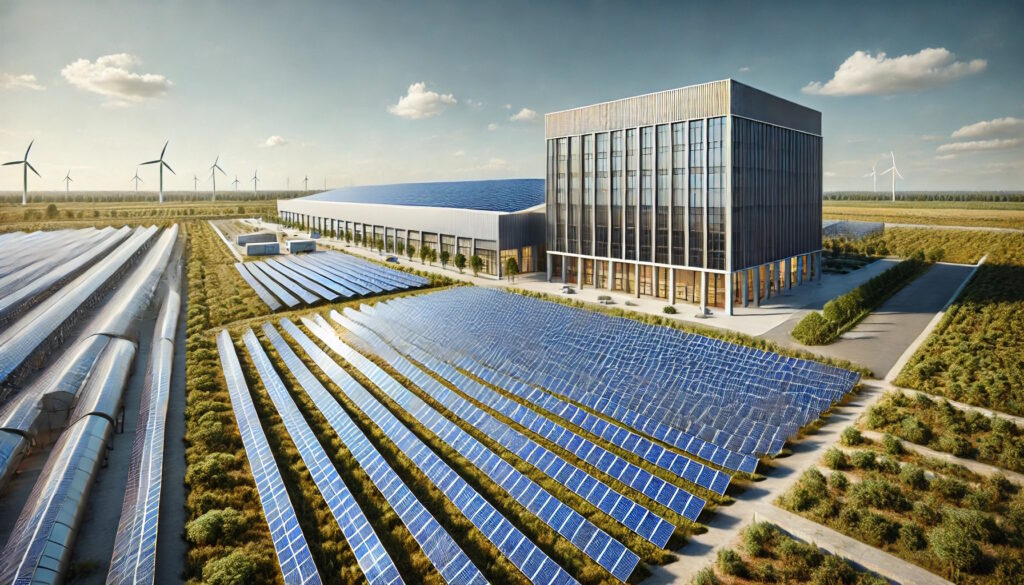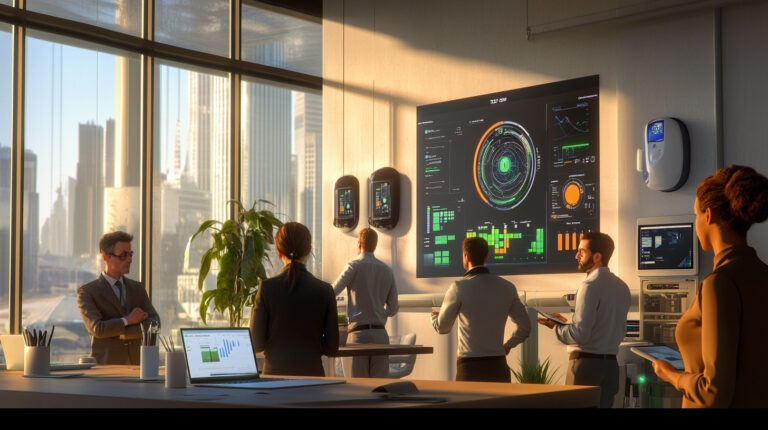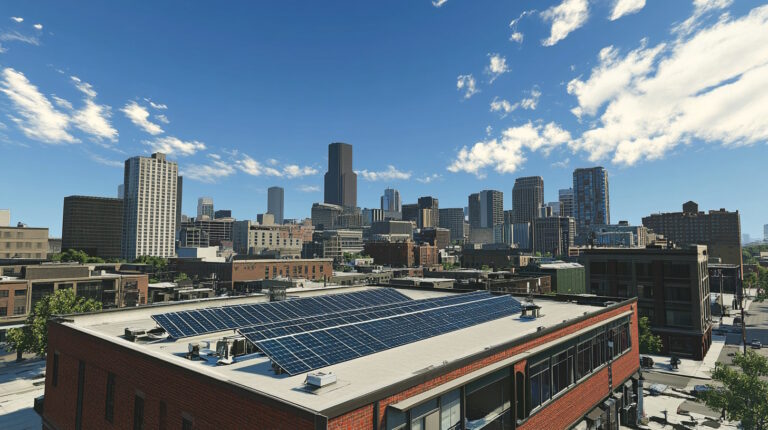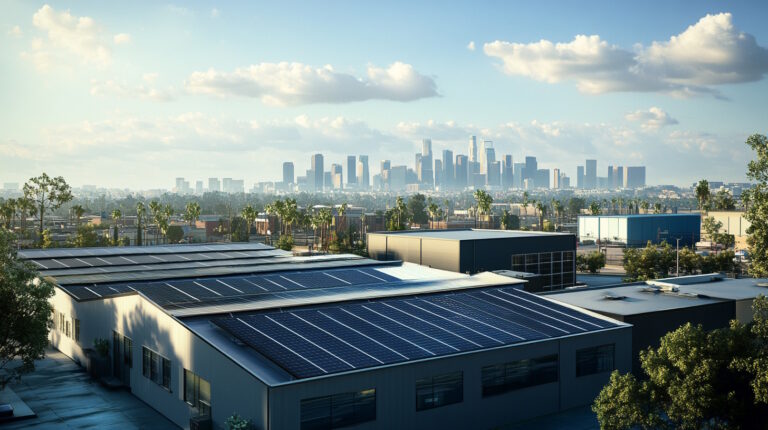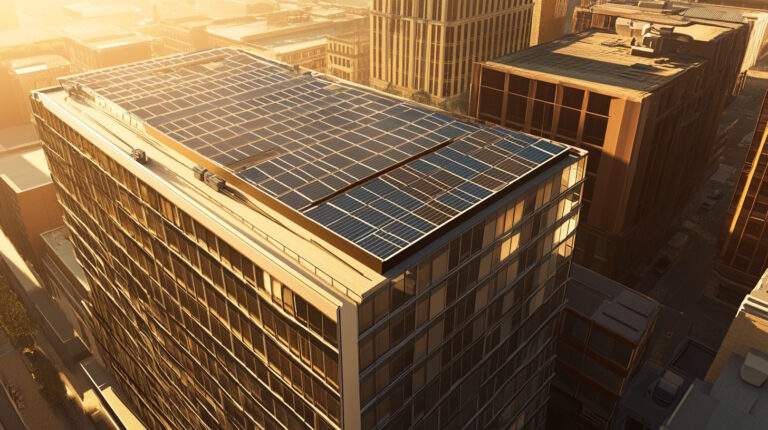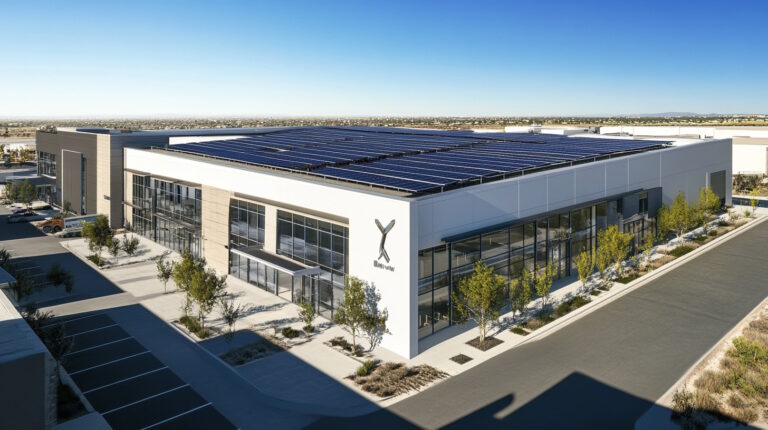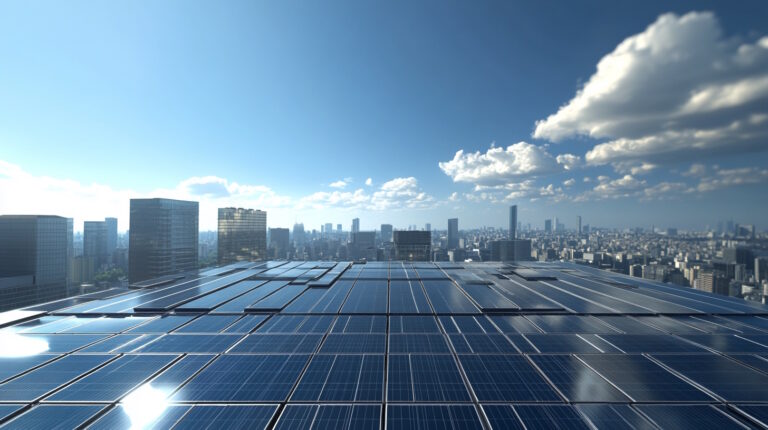Article Insights
- Discover the unique features and benefits of commercial solar energy and industrial solar systems.
- Learn how to choose the right solar solution based on your property type and energy needs.
- Understand the financial incentives and return on investment (ROI) associated with each solar option.
- Gain insights into the future of solar energy and its role in enhancing sustainability for businesses.
In today’s rapidly evolving energy landscape, solar power is no longer just an eco-friendly alternative; it has become a practical solution for businesses looking to reduce costs and enhance their brand image.
However, as commercial property owners explore the world of solar energy, they often encounter two primary categories: commercial solar energy and industrial solar systems.
Understanding the distinction between these two solar solutions is crucial for making informed decisions that align with your operational goals.
This article will explore the unique attributes of both commercial and industrial solar systems, helping you determine which option best suits your needs.
Understanding Commercial Solar Energy
Commercial solar energy refers to solar power systems designed for use in commercial buildings, such as offices, retail spaces, and hospitality venues.
These systems typically vary in size, catering to the energy needs of businesses that operate in a range of sectors.
The installation of commercial solar panels can result in substantial cost savings through reduced energy bills, as well as potential revenue generation by selling excess power back to the grid.
One of the most significant advantages of commercial solar systems is their flexibility.
Many commercial property owners can benefit from rooftop installations, which utilize underutilized space without requiring significant land investment.
Additionally, commercial solar projects often qualify for various financial incentives, such as tax credits and rebates, making them a viable option for businesses looking to invest in sustainable energy solutions.
Exploring Industrial Solar Systems
In contrast, industrial solar systems are designed for larger-scale applications, typically serving manufacturing facilities, warehouses, and distribution centers.
These systems are engineered to meet the high energy demands of industrial operations, which often require substantial amounts of power for machinery and equipment.
Due to their larger scale, industrial solar installations can generate more electricity, providing significant savings on energy costs.
Industrial solar projects also tend to involve more complex systems, including ground-mounted solar arrays and advanced energy management technologies.
These systems can be tailored to fit the specific needs of an industrial facility, enabling companies to optimize their energy consumption and minimize operational costs.
The sustainability benefits are equally significant, as industrial solar systems contribute to reduced carbon footprints and enhance corporate social responsibility initiatives.
Key Differences Between Commercial and Industrial Solar
While both commercial solar energy and industrial solar systems serve the common goal of harnessing solar power, several key differences set them apart.
First, the size and scale of installations differ considerably. Commercial systems are often smaller, making them suitable for urban areas with limited rooftop space, while industrial systems can span large areas and accommodate extensive energy needs.
The complexity of these projects also varies; commercial installations typically involve straightforward permitting and installation processes, whereas industrial solar projects may face more regulatory hurdles and require longer timelines for completion.
Financial considerations further highlight the differences between these two options.
Commercial solar installations may offer immediate cost savings and incentives but are often limited in their energy production capacity.
In contrast, industrial solar systems can provide significant long-term savings due to their larger scale and capacity for energy production.
To illustrate these differences visually, consider creating a side-by-side comparison chart that details the key features, benefits, and costs associated with both commercial and industrial solar systems.
This graphic could serve as a valuable resource for property owners navigating their solar options.
Selecting the Right Solar Solution for Your Business
For commercial property owners, selecting the right solar solution involves careful consideration of several factors.
Assessing your facility’s energy needs, size, and operational goals is crucial in determining whether a commercial solar energy system or an industrial solar system is more appropriate.
Engaging with solar consultants can provide valuable insights and recommendations tailored to your specific situation, ensuring you make an informed decision.
Understanding the financial implications is equally important. Investigate available incentives and financing options to maximize your return on investment.
With the right strategy, solar energy can significantly enhance your business’s bottom line while contributing to a more sustainable future.
Choosing the Right Solar Solution for Your Business
The differences between commercial solar energy and industrial solar systems are significant, with each option offering unique benefits tailored to distinct business needs.
By understanding these distinctions, commercial property owners can make informed decisions that align with their energy goals and financial strategies.
As the demand for sustainable energy solutions continues to grow, investing in solar power can enhance your business’s brand image, reduce operating costs, and contribute to a greener planet.
Embracing solar energy is not just an investment in technology; it’s an investment in the future of your business and the environment. Get in touch with us at Green Current Advisors to connect.

